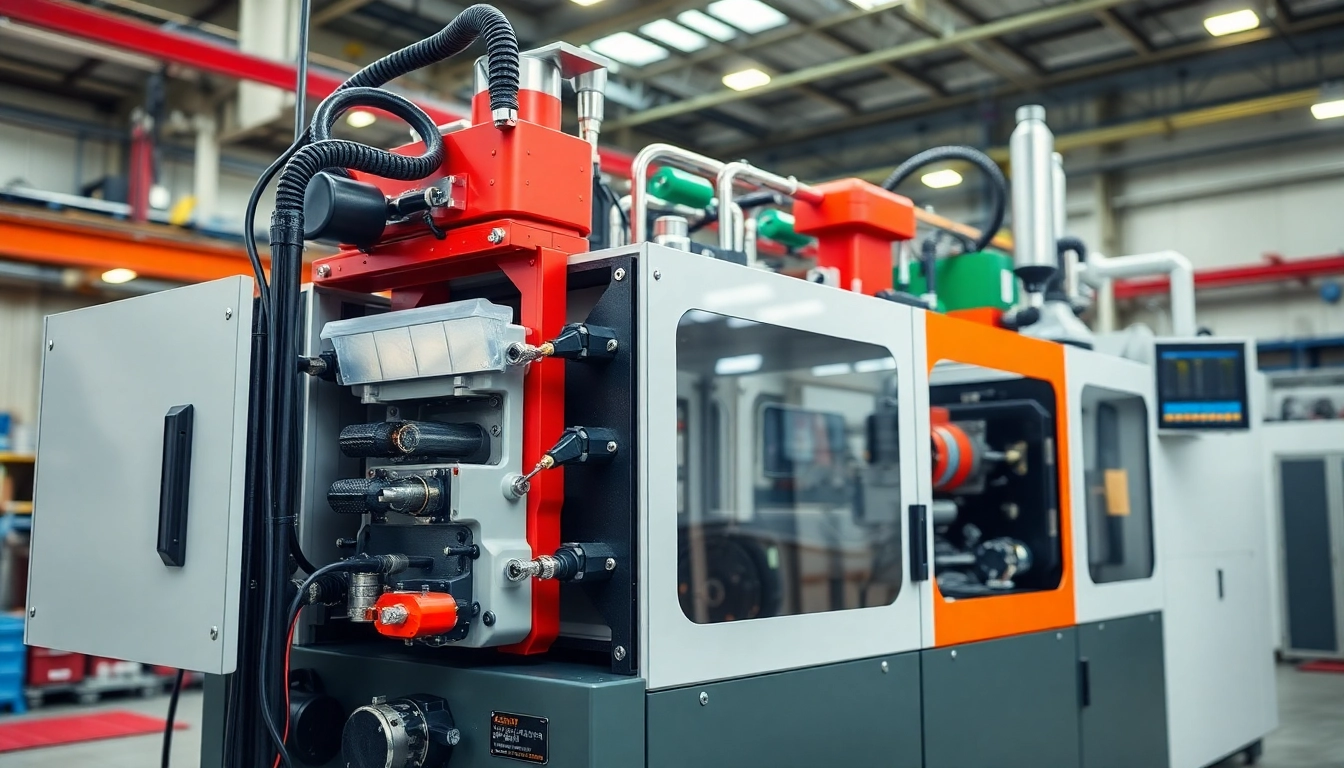Understanding the Level 5 NVQ Diploma in Controlling Lifting Operations
What is the Level 5 NVQ Diploma?
The Level 5 NVQ Diploma in Controlling Lifting Operations is a nationally recognized qualification designed for individuals working in the construction industry who are responsible for managing lifting operations. This qualification assesses the learner’s competence in planning, organizing, and supervising lifting operations while ensuring compliance with health and safety regulations. Completing this diploma demonstrates that the individual possesses the necessary skills and knowledge to effectively oversee lifting operations within the workplace.
The diploma encompasses a range of topics essential for effective management and operational control, making it suitable for experienced practitioners in construction and heavy lifting. Learners can showcase their capabilities through workplace evidence, which is critical for competence-based qualifications.
Core Competencies and Skills Required
To excel in the Level 5 NVQ Diploma, candidates must possess a set of core competencies and skills, including but not limited to:
- Leadership and Management: Ability to lead teams effectively, making sound decisions under pressure.
- Health and Safety Awareness: In-depth understanding of health and safety regulations pertinent to lifting operations.
- Technical Knowledge: Familiarity with lifting equipment, load calculations, and lifting techniques to ensure safe operations.
- Problem-Solving Abilities: Capability to identify potential hazards and implement solutions proactively.
- Communication Skills: Effective interaction with team members, clients, and regulatory bodies.
The Importance of Lifting Operations in Construction
Lifting operations are a critical component of construction projects. They involve the movement of heavy materials and equipment, which necessitates skilled planning and execution. A lapse in these operations can lead to accidents, injuries, and significant financial losses. Therefore, understanding the intricacies of lifting operations is vital for any professional within the construction industry.
The Department for Transport reported that many construction-related incidents arise due to improper lifting operations, reiterating the need for highly skilled operators who are trained in the best practices of lifting tasks. By successfully completing the Level 5 NVQ Diploma in Controlling Lifting Operations, candidates not only enhance their career prospects but also contribute to creating safer work environments.
Key Components of the Diploma Curriculum
Overview of Units Covered in the Diploma
The Level 5 NVQ Diploma is structured around several key units that cover a broad spectrum of relevant topics:
- Planning Lifting Operations: Focuses on the preparation and planning required by appointed persons to ensure safe lifting processes.
- Health and Safety Regulations: Emphasizes the legal implications and safety measures necessary to mitigate risks during lifting operations.
- Communication in Lifting Operations: Covers the importance of clear communication among teams during lifts.
- Equipment Selection: Teaches how to choose appropriate lifting equipment based on the load and the operational environment.
Health and Safety Regulations in Lifting Operations
Health and safety regulations are a cornerstone of the Level 5 NVQ Diploma curriculum. The Health and Safety Executive (HSE) sets out guidelines that must be adhered to during lifting operations. As candidates progress through this diploma, they gain a comprehensive understanding of legislation such as the Lifting Operations and Lifting Equipment Regulations (LOLER) 1998, which governs the safe use of lifting equipment. Compliance with these regulations is not only crucial for legal reasons but also for safeguarding workers and preventing accidents.
These regulations require regular equipment inspections, training for operators, and meticulous planning of lifting operations, which students learn to manage effectively during their studies.
Planning Lifting Activities Effectively
Effective planning is integral to successful lifting operations. The diploma imparts necessary knowledge on how to assess sites, evaluate risks, and develop comprehensive lift plans. Students learn how to consider factors such as:
- Load characteristics, such as weight and dimensions.
- Site layout, including obstacles and access routes.
- Weather conditions that may impact safety.
- Coordination with other workforce activities to ensure smooth operations.
By mastering these planning principles, candidates significantly increase their professional capabilities and the safety of their teams.
Preparing for the Assessments
Understanding the Assessment Criteria
Assessment for the Level 5 NVQ Diploma is conducted through a portfolio of evidence that demonstrates competence in the learning outcomes defined by the curriculum. Candidates must provide proof of their skills through documentation, practical demonstrations, and reflective accounts, showcasing their understanding of the various components of lifting operations.
Each candidate should be familiar with the NVQ assessment criteria, which typically includes a combination of:
- Knowledge-based assessments, where candidates answer theoretical questions relating to lifting operations.
- Practical assessments, assessing real-world performance during lifting activities.
- Reflective accounts, where candidates explain their decision-making processes and learning experiences.
Common Questions and How to Approach Them
As candidates prepare for assessments, they might encounter a variety of common questions. Here are some approaches to tackle these effectively:
- Analyze the question: Always read the question thoroughly to understand what is being asked before formulating your answer.
- Use specific examples: Whenever possible, support your answers with examples from your experience or case studies. This illustrates your practical knowledge.
- Structure your response: Use clear and logical structures in your answers. A well-organized response will make it easier for assessors to follow your reasoning.
- Refer to regulations: Relate your answers back to relevant health and safety regulations and best practices.
Effective Study Tips for Success
Developing a strategic study plan is crucial for succeeding in the Level 5 NVQ Diploma. Here are some actionable tips:
- Utilize Study Groups: Collaborating with fellow candidates can help clarify difficult concepts and provide different perspectives on lifting operations.
- Online Resources: Leverage online platforms and materials available, such as those found at level 5 nvq diploma in controlling lifting operations answers, for additional practice questions and guidance.
- Create Study Schedules: Develop a study timetable that allocates specific time for each topic, ensuring that all areas are covered before assessments.
- Seek Mentorship: Engage a mentor or experienced colleague who has already completed the diploma and can provide insight or advice.
Practical Applications and Case Studies
Real-World Scenarios in Lifting Operations
Understanding real-world applications of lifting operations is essential for candidates in the NVQ program. Case studies highlighting successful lift projects can provide critical insights into best practices. For instance, consider a complex construction project requiring multiple lifts:
The project team employed detailed planning that considered not just the physical requirements but also the logistical challenges involved with crane setup and operation, such as ensuring that the site remained free of obstructions throughout the lift. This kind of detailed case study showcases the importance of thorough planning, safety considerations, and effective communication among team members.
Analysis of Successful Lift Plans
Successful lifting operations often stem from effective lift plans, which involve clear definitions of roles, responsibilities, and procedures. An illustrative example would be a major infrastructure project where the project manager clearly outlined specific lifting methodologies, involved all stakeholders early in the planning process, and conducted risk assessments to mitigate potential hazards.
Through collective work, the team experienced minimal downtime and zero accidents, marking a benchmark for future projects. This emphasizes how the principles learned in the Level 5 NVQ Diploma can be directly applied to real-world scenarios.
Lessons Learned from Industry Examples
Analyzing past mistakes and successes in lifting operations serves as an important learning tool. For instance, a renowned case of a large construction project that faced delays due to equipment failure resulted in an overhaul of their maintenance procedures and operator training protocols. By establishing a culture of proactive safety measures, similar projects have benefited from reduced downtime and increased safety compliance.
Such lessons underscore the significance of the knowledge and skills acquired through the Level 5 NVQ Diploma in controlling lifting operations, highlighting the need to prioritize continuous improvement and safety interventions.
Future Opportunities with Your Qualification
Career Paths Following the Level 5 NVQ Diploma
The Level 5 NVQ Diploma opens various career pathways in the construction and engineering industry. Graduates can explore roles such as:
- Lift Planner: Specializing in creating lift plans and overseeing implementation.
- Site Manager: Overseeing day-to-day operations of construction sites and managing multiple teams.
- Health and Safety Officer: Focusing on ensuring compliance with health and safety regulations across the site.
- Construction Manager: Planning and executing construction projects from start to finish.
Industry Demand and Job Market Insights
The demand for qualified professionals in lifting operations continues to grow as the construction industry evolves. There is an increasing recognition of the need for specialist skills that ensure both safety and efficiency in lifting operations. According to the construction skills network, there will be a significant shortage of skilled workers in the coming years, making this qualification a critical asset in job markets.
Continuing Education and Advanced Qualifications
For those looking to further their education, the Level 5 NVQ Diploma acts as a stepping stone toward more advanced qualifications, such as:
- Level 6 NVQ Diplomas: Which delve deeper into management and leadership roles in construction.
- Specialist Certifications: Focused on safety management or advanced lifting techniques.
- Higher Education Degrees: Options such as a Bachelor’s or Master’s in Construction Management or Engineering.
Pursuing further education not only enhances job security but also opens doors to higher-level positions in the ever-growing construction industry.













Leave a Reply